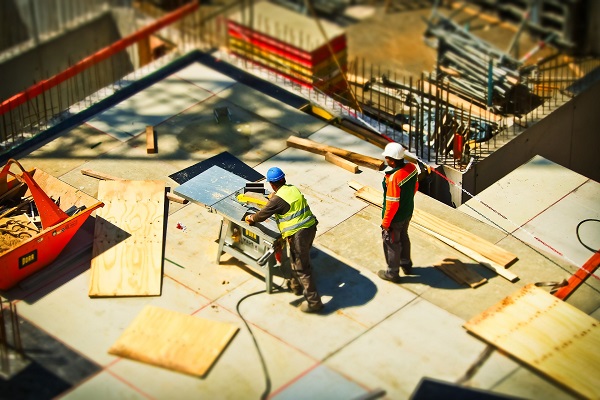A master’s in construction management, one of the highest-paying master’s degrees, prepares you for a career as a construction manager. If you’re like many students interested in this field, you might wonder what the difference is between a construction manager and a project manager. Generally, a construction manager has project management responsibilities specific to building and construction efforts, as well as more of a need for specialized knowledge in construction. There is some overlap between the job duties of construction manager and project manager.
The Scope of a Manager’s Job Duties
The biggest difference between a construction manager and a project manager is the scope of their responsibilities. A construction manager is a specialized project manager who works primarily on managing the construction aspects of a project.
Although it can help to consider a construction manager as the manager of the construction site, that doesn’t fully represent all that a construction manager does. Behind the scenes of the construction site, the construction manager also has responsibilities that contribute to a building project getting done on time and within the owner’s budget. This work includes estimating costs, keeping on top of budgets and work scheduling and ensuring compliance with legal regulations, according to the United States Bureau of Labor Statistics (BLS).
The construction of a building is a big project in itself, but if you look at the larger picture, it is typically just one part of a bigger and more complex project. Whether a company is moving to new headquarters or expanding to additional office locations, there’s a lot more to it than just assembling a new building. A project manager is typically the one who coordinates this larger effort, including figuring out what the company needs in its new space, searching for the building site and planning what happens after construction is done.
The project manager will delegate the responsibilities of coordinating and overseeing the construction work to the construction manager. Project managers are also responsible for what happens before the construction manager gets started and after the new building is complete. While the construction manager is selecting materials and setting work timetables, the project manager may oversee plans for packing up and moving the supplies, equipment and furniture in the existing office or acquiring the supplies for the new office.
When problems arise in a project, the nature of the challenge determines who is responsible for solving it. Construction managers respond to issues on the job site, while project managers deal with issues of getting building and interior design plans approved.
The Level of Construction Knowledge Needed
IMAGE SOURCE: Pixabay, public domain
Since the construction manager’s job is to oversee the work of building the structure, this professional must have more specialized knowledge of the construction process than a project manager. In addition to or instead of a master’s in construction degree, many construction managers have some practical experience working in the construction industry, according to the BLS.
Although you don’t need to be an expert in the techniques of all of the trades and areas of specialization that play a part in the construction process, you should understand what different methods, materials and techniques are used for and how to assess the quality of the work. You also need to understand the time and costs associated with different aspects of the construction process and the challenges that can arise in the course of completing the work.
Project managers don’t have to be experts in construction, especially when they have a construction manager to rely on who oversees the construction site. Instead, project management is most closely related to business, and many project managers have an education in business administration. This broad, versatile education often equips students with the skills to manage budgeting, logistics and strategic planning, all of which are valuable in project management.
Although both construction management and project management or general business administration programs cover topics like cost estimating and budgeting, the core coursework in these degree programs is different.
The Overlap Between Construction Management and Project Management
Some delineations between the work of a construction manager and a project manager are clear. A construction manager is the one on the construction site supervising the contractors and skilled trades workers, while the project manager is the one who selects and acquires the site and plans the logistics of utilizing that site after the building is finished. Other aspects of the work can be more difficult to definitively list under one of these job titles. For example, both construction managers and project managers are involved in budgeting and cost estimation.
Certain roles in the construction industry involve a greater mix of construction management and project management job duties and areas of knowledge. Very small projects may have one person responsible for both construction management and project management. Moderate-sized projects will often have distinct construction managers and project managers. Large building projects may have a whole hierarchy of construction managers responsible for different aspects of the project. In this case, all of the lower-level and mid-level construction managers would answer to a senior construction manager who oversees the job site.
Between the construction manager and the project manager, the project manager has more seniority overall, but the construction manager has more direct responsibility on the construction site.
Additional Resources
What Kind of Daily Duties Are Involved in Construction Management?
What Are the Key Skills Needed to Succeed in Construction Management?

